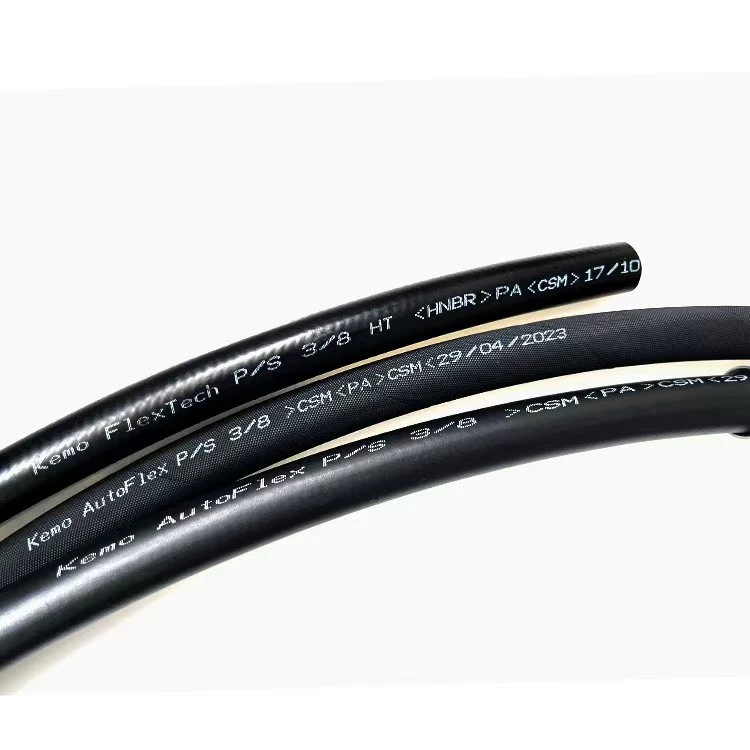fuel line solutions for efficient car performance and maintenance tips
Oct . 13, 2024 15:15 Back to list
fuel line solutions for efficient car performance and maintenance tips
The Importance of Fuel Pipes in Automotive Design
In the realm of automotive engineering, even the smallest component can have a significant impact on a vehicle's overall performance and reliability. Among these components, fuel pipes play a crucial role in ensuring that fuel is transported from the tank to the engine efficiently and safely. This article delves into the significance of fuel pipes, their design considerations, common materials used, and maintenance practices to ensure optimal performance.
What are Fuel Pipes?
Fuel pipes are tubes or conduits designed to transport fuel from the fuel tank to the engine. They are part of the fuel system that ensures the internal combustion engine receives the necessary amount of fuel for operation. In modern vehicles, fuel pipes are engineered to withstand extreme conditions, including high pressures, temperature fluctuations, and exposure to corrosive substances.
Design Considerations
The design of fuel pipes involves several critical factors. Firstly, material selection is paramount. Fuel pipes must be made of materials that can resist corrosion and degradation over time. Common materials include high-density polyethylene (HDPE), stainless steel, and aluminum. Each material has its own set of advantages and is chosen based on factors such as weight, cost, and resistance to various fuels.
Another essential design aspect is the pipe diameter. The diameter must be sufficiently wide to allow for adequate fuel flow while maintaining an appropriate pressure. Engineers must calculate the required fuel flow rate based on the engine’s specifications to avoid underperformance or potential flooding.
Routing and placement of fuel pipes is equally important. Pipes must be positioned to minimize bends and avoid sharp angles, which can create pressure drops and increase the risk of leaks. Furthermore, they should be routed away from hot engine components to prevent thermal degradation of the materials used.
Common Challenges
car fuel pipe

Despite careful design and engineering, fuel pipes can encounter various challenges during the lifespan of a vehicle. One of the most common issues is leakage, which can result from wear and tear, exposure to harsh chemicals, or improper installation. A fuel leak poses a serious safety hazard, as it not only compromises vehicle performance but also creates fire risks.
Another challenge is clogging. Over time, deposits from fuel can accumulate within the pipes, reducing fuel flow to the engine. Contaminated fuel, often found in older vehicles or those using lower-quality fuel, can exacerbate this issue. Regular maintenance, including fuel system cleaning, can help mitigate clogging.
Finally, changes in fuel composition due to advances in technology, such as the use of biofuels or alternative fuels, can lead to compatibility issues. Fuel pipes designed for traditional fuels may not perform optimally with newer fuel types, necessitating upgrades or replacements.
Maintenance of Fuel Pipes
To ensure fuel pipes function effectively throughout a vehicle's lifecycle, regular maintenance is essential. Vehicle owners should be vigilant for signs of wear, such as cracks, discoloration, or leaks. A periodic inspection of the fuel system can help identify potential issues before they escalate.
Additionally, maintaining the fuel quality is crucial. Using high-quality fuel reduces the risk of deposits forming in the fuel lines and keeps the system clean. Regular fuel filter replacements also contribute to better performance by trapping contaminants before they can enter the fuel pipes.
For mechanic professionals, it is vital to stay informed about the latest standards and practices in fuel system maintenance. This includes understanding the specifications of different fuel types and the materials used in fuel pipe manufacturing.
Conclusion
In conclusion, fuel pipes are essential components of any vehicle’s fuel system. Their design and maintenance have a direct impact on engine performance, vehicle safety, and overall efficiency. As automotive technology continues to evolve, so will the materials and designs of fuel pipes, necessitating ongoing attention from both manufacturers and consumers. By understanding the significance of these components, vehicle owners can make informed decisions and maintain their vehicles effectively, ensuring a smooth and safe driving experience.
